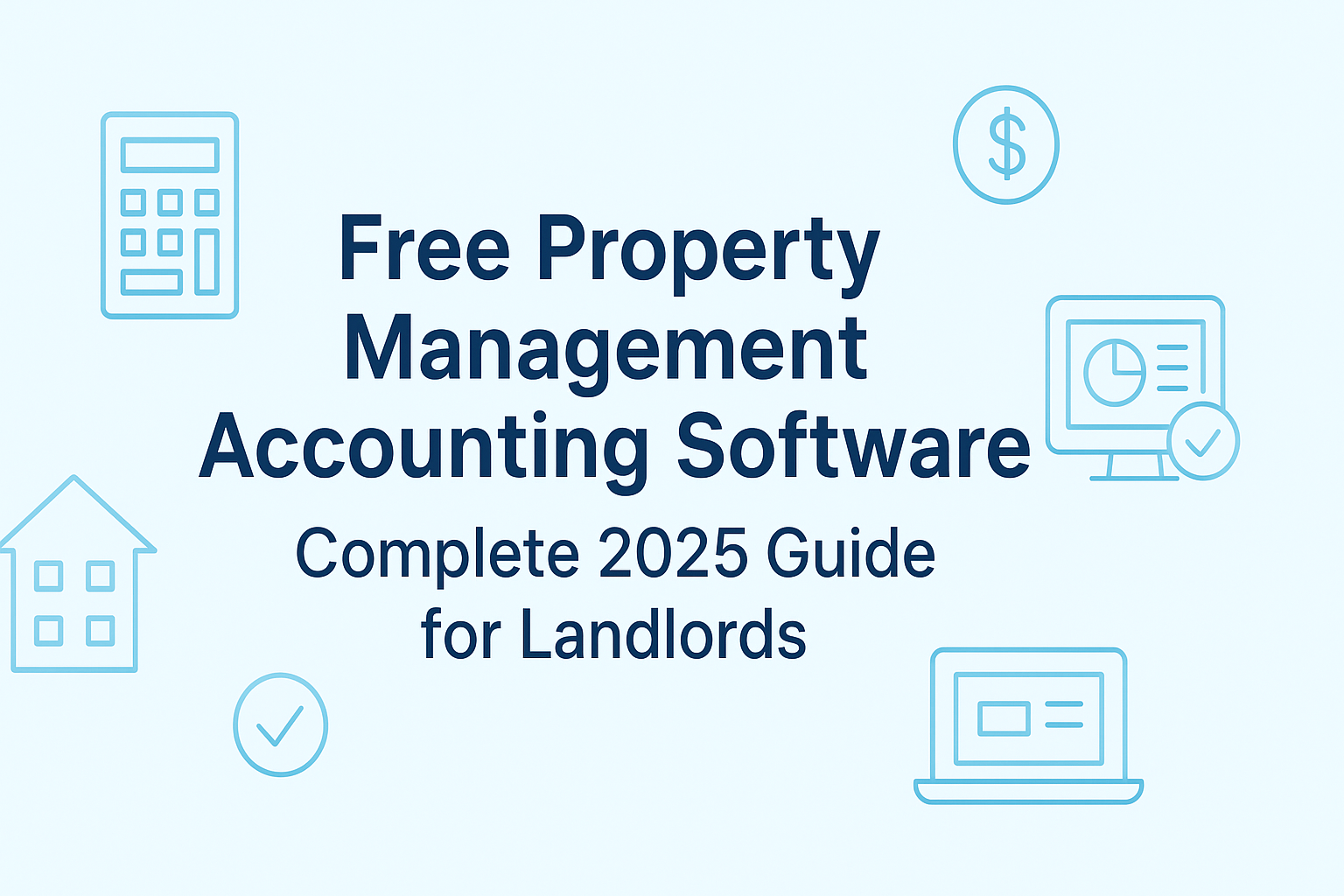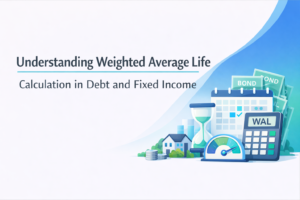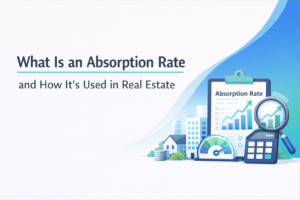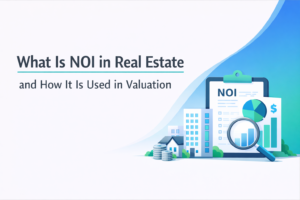
Managing rental properties without proper accounting software is like navigating without a map. You’ll eventually reach your destination, but the journey will be unnecessarily complicated. If you’re currently tracking rent payments in spreadsheets or sorting through shoeboxes of receipts, free property management accounting software might seem like the perfect solution.
But is free software really free? And more importantly, will it actually help your property management business grow?
In this comprehensive guide, we’ll explore everything you need to know about free property management accounting tools, including hidden costs, essential features, and clear indicators for when it’s time to upgrade.
What Is Free Property Management Accounting Software?
Free property management accounting software provides digital tools for landlords and property managers to handle essential bookkeeping tasks without monthly subscription fees. These platforms typically include:
- Online rent collection from tenants
- Income and expense tracking for rental properties
- Basic financial reporting for tax preparation
- Digital lease management and tenant communication
- Maintenance request tracking
Understanding the “Freemium” Model
Most free property management software operates on a freemium pricing model. You access core features at no cost, but encounter limitations designed to encourage upgrades:
Common Restrictions in Free Plans:
| Limitation Type | Typical Restrictions |
|---|---|
| Unit Caps | 1-10 properties depending on provider |
| Transaction Fees | $1-3 per ACH payment; ~2.9% for credit cards |
| Feature Locks | No automated bank reconciliation, limited reporting |
| Support Access | Email-only or community forums (no phone support) |
| User Limits | Single user or limited team member access |
| Storage Caps | Restricted document storage space |
Understanding these boundaries upfront helps you evaluate whether a free tool truly meets your needs or will require costly upgrades down the road.
Who Should Use Free Property Management Accounting Software?
Free property management tools work best for specific user profiles. Knowing whether you fit these categories can save you time and frustration.
Ideal Candidates for Free Software
Self-Managing Landlords If you own and personally manage 1-5 rental units, free software can effectively replace spreadsheets and paper records. You handle your own bookkeeping and don’t need to manage funds for other property owners.
New Property Investors First-time landlords testing digital property management can experiment with online rent collection and basic reporting without financial commitment. This low-risk approach lets you learn the software category before investing in premium tools.
Side Hustle Landlords Property owners managing rentals as secondary income often have simpler needs. If you’re not running a full-time property management business, free software may provide sufficient functionality.
When Free Software Isn’t Appropriate
Third-Party Property Managers Once you manage properties for other owners, you need proper trust accounting and compliant owner statements. Free tools rarely offer the fund segregation capabilities required by law. Trust accounting requirements vary by state, so consult with a legal professional to ensure compliance.
Growing Property Management Companies If you’re managing more than 10 units or planning rapid expansion, you’ll quickly outgrow free software limitations. The time spent working around restrictions often exceeds the cost savings.
Businesses Requiring Advanced Reporting Property managers needing detailed financial analytics, custom reports, or investor-grade statements will find free software inadequate for professional needs.
7 Key Benefits of Free Property Management Accounting Software
When used appropriately, free property management tools offer legitimate advantages for small-scale landlords.
1. Zero Monthly Subscription Costs
The most obvious benefit is eliminating monthly software expenses. For a small portfolio, saving $50-200 monthly means more money for property improvements, marketing, or emergency reserves.
Annual Savings Comparison:
- Premium property management software: $600-2,400/year
- Free software: $0 in subscription fees (transaction fees may apply)
2. Quick Implementation Without Training
Most free platforms feature intuitive interfaces designed for users without accounting backgrounds. Simple setup wizards guide you through:
- Adding property details and unit information
- Importing tenant contact information
- Connecting bank accounts for transaction tracking
- Setting up automated rent collection
You can typically start using basic features within 30-60 minutes of creating your account.
3. Automated Online Rent Collection
Free software modernizes rent collection by allowing tenants to pay via:
- ACH bank transfers (typically lowest transaction fees)
- Credit/debit cards (higher fees but more convenient)
- Digital payment apps (availability varies by platform)
Automated payment reminders reduce late payments by notifying tenants before due dates. This feature alone can improve cash flow consistency.
4. Centralized Income and Expense Tracking
Instead of maintaining multiple spreadsheets, you track all rental property finances in one location. Benefits include:
- Automatic categorization of rental income and expenses
- Digital receipt storage (eliminating paper filing systems)
- Basic profit and loss reports for tax preparation
- Quick financial snapshots by property or across your portfolio
5. Bank Account Integration
Many free tools offer bank feed connections that automatically import transactions. This reduces manual data entry and minimizes human error in your bookkeeping records.
6. Compliance Documentation
Digital records provide better documentation for tax purposes and legal compliance than paper systems. You can easily access:
- Historical rent payment records
- Expense receipts with timestamps
- Lease agreements and amendments
- Tenant communication logs
7. Risk-Free Testing Environment
You can evaluate multiple free platforms without financial commitment. If a tool doesn’t fit your workflow, export your data and try another option. This flexibility helps you find the right solution through hands-on experience.
7 Significant Drawbacks of Free Property Management Software
While free software offers advantages, understanding its limitations prevents costly surprises as your business evolves.
1. Inadequate Trust Accounting and Owner Statements
This is the most critical limitation for professional property managers. Free tools typically cannot:
- Properly segregate owner funds from operating accounts
- Generate compliant owner statements automatically
- Track management fees and expense allocations accurately
- Provide audit trails for owner fund transactions
Compliance Risk: Improper trust accounting can result in legal penalties, license suspension, or lawsuits from property owners. Trust accounting requirements vary by state—consult with a legal professional to ensure compliance.
2. Hidden Transaction Fees That Add Up
“Free” software often generates revenue through payment processing fees:
Typical Fee Structure:
- ACH payments: $1-3 per transaction
- Credit card payments: 2.5-3.5% of payment amount
- Same-day/expedited transfers: Additional fees of $5-10
Example Cost Calculation: Managing 5 units at $1,500/month rent with ACH payments at $2 per transaction:
- Monthly fees: 5 units × $2 = $10
- Annual fees: $10 × 12 = $120
While this seems modest, fees increase proportionally with your portfolio size.
3. Payment Deposit Delays
Free platforms may have slower payment processing than premium alternatives:
- ACH transfers: 3-5 business days to reach your account
- Credit card payments: 2-4 business days
- Retail cash payments: Up to 5 business days
These delays can impact cash flow management, especially for smaller operations with tight margins.
4. Time-Consuming Manual Reconciliation
Without automated bank reconciliation features, you’ll spend significant time matching transactions each month. Premium software automatically matches imported bank transactions to system records, while free tools often require manual verification of every entry.
Time Impact: Manual reconciliation can take 2-4 hours monthly for a 5-unit portfolio, increasing with portfolio size.
5. Missing Tax Preparation Features
Most free property management software lacks 1099 generation capabilities. This means:
- Manually tracking vendor and contractor payments all year
- Using separate spreadsheets for 1099-eligible expenses
- Purchasing additional software or services for tax form preparation
- Increased risk of filing errors or omissions
Tax requirements vary by jurisdiction and individual circumstances—consult with a qualified tax professional for guidance.
6. Performance Issues at Scale
As you add properties and tenants, free software may experience:
- Slower page load times and system responsiveness
- Report generation timeouts or failures
- Inability to perform bulk operations (requiring one-by-one processing)
- Data synchronization delays
These inefficiencies create frustration and waste valuable time that should be spent on revenue-generating activities.
7. Limited Data Portability and Integration
When you outgrow free software, migration challenges include:
- Restricted export options (often only basic CSV files)
- No API access for connecting specialized tools
- Incomplete data exports missing transaction history
- Manual reformatting required for new system imports
Migration Cost: Data migration services from free to premium software can cost $500-2,000 depending on portfolio complexity.
How to Properly Evaluate Free Property Management Software
Don’t rely solely on feature lists and marketing claims. Test free software with real-world workflows before committing your entire operation.
Create a Realistic Testing Scenario
Set up a pilot project using actual property and tenant information:
Essential Test Workflows:
| Workflow | Test Procedure | Red Flags to Watch For |
|---|---|---|
| Rent Collection | Process actual tenant payment from submission to bank deposit | High transaction fees; excessive deposit delays; payment failures |
| Expense Recording | Log vendor payments and property expenses with receipt uploads | No expense categorization; limited storage space; no recurring expense options |
| Bank Reconciliation | Import bank statement and match all transactions | No bank feed integration; entirely manual matching process; frequent discrepancies |
| Financial Reporting | Generate P&L statement and property-level reports | Missing key metrics; unprofessional formatting; no customization options |
| Owner Statements | Create monthly statement with income, expenses, and fees | Cannot generate automatically; incorrect calculations; missing transactions |
| Data Export | Attempt full data export of all properties and transactions | Limited to basic CSV; missing historical data; no full backup option |
Key Questions to Answer During Testing
- Speed: How long does each common task take compared to your current process?
- Accuracy: Are financial calculations correct without manual verification?
- Scalability: Does the system slow down when adding multiple properties?
- Support: How quickly do you receive responses to questions?
- Mobile Access: Can you perform essential tasks from your smartphone?
Dedicate at least one full month to testing before migrating your entire portfolio. This timeline reveals issues that don’t appear during quick demos.
Clear Signs You’ve Outgrown Free Property Management Software
Your software should make property management easier, not harder. Watch for these warning signs that indicate it’s time to upgrade.
Operational Red Flags
- Month-End Closing Takes More Than 3 Days If reconciling accounts and generating reports consistently requires 3+ days, you’re falling behind industry benchmarks. Top-performing property managers complete month-end closing in 1-2 days using automated tools.
- Constant Manual Corrections Regularly fixing owner statements, correcting duplicate entries, or adjusting account balances indicates your software isn’t maintaining accurate records.
- Spreadsheet Dependency When you maintain separate Excel files for expense approvals, 1099 tracking, or owner distributions, your “free” software is creating extra work rather than eliminating it.
- Missing or Duplicate Transactions Frequent accounting discrepancies signal inadequate data management and potential compliance issues.
Growth Indicators
- Managing Properties for Other Owners The moment you take on third-party property management clients, trust accounting compliance becomes mandatory. Free software cannot meet these legal requirements.
- Portfolio Exceeds 10 Units While there’s no universal threshold, most property managers find free software too restrictive beyond 10 units. Transaction volumes and reporting needs increase exponentially with portfolio growth.
- Team Collaboration Needs Adding team members or virtual assistants requires multi-user access, role-based permissions, and activity logging—features rarely available in free plans.
- Professional Reporting Requirements Providing investor-grade financial statements or lender documentation demands sophisticated reporting capabilities beyond free software capabilities.
Financial Impact Signals
- Lost Time Exceeds Potential Costs Calculate the hours spent on manual workarounds and administrative tasks. If this time multiplied by your hourly rate exceeds premium software costs, you’re losing money using “free” tools.
- Client Complaints About Reports Property owners or investors requesting better financial visibility indicate your current reporting capabilities are inadequate.
- Missed Tax Deductions Poor expense tracking and categorization may result in overlooked tax deductions, potentially costing more than premium software fees.
The True Cost of “Free” Property Management Software
Understanding total cost of ownership helps you make informed decisions.
Direct Costs
- Transaction fees: $120-500+ annually depending on unit count
- Feature add-ons: $10-50/month for individual premium features
- Third-party integrations: $20-100/month for accounting or screening tools
- Tax preparation software: $50-300 annually for 1099 generation
Indirect Costs
- Time spent on manual tasks: 5-15 hours monthly at $25-100/hour opportunity cost
- Missed growth opportunities: Time wasted on admin work instead of client acquisition
- Increased error risk: Manual processes lead to costly mistakes
- Migration costs: $500-2,000 when eventually switching to premium software
Annual Total Cost Example: For a 10-unit portfolio, “free” software may actually cost $1,500-4,000 annually when including all direct and indirect expenses.
When to Invest in Premium Property Management Software
The right time to upgrade varies by business, but certain milestones consistently indicate readiness for premium tools.
Investment Triggers
- Crossing the 5-10 Unit Threshold Most property managers find positive ROI from premium software between 5-10 units, where automation savings exceed subscription costs.
- Adding Third-Party Management Clients Legal compliance requirements for trust accounting make premium software mandatory when managing properties for others.
- Hiring Your First Employee Team collaboration features, role-based permissions, and audit trails become essential when adding staff.
- Spending 10+ Hours Monthly on Admin Tasks If property accounting consumes significant time, automation will quickly pay for itself.
What Premium Software Provides
Modern property management platforms offer comprehensive solutions including:
Advanced Accounting Features
- Automated bank reconciliation with transaction matching
- Compliant trust accounting with owner fund segregation
- Customizable financial reporting and analytics
- Multi-entity accounting for different property types
Tax and Compliance Tools
- Built-in 1099 e-filing with automatic vendor tracking
- Audit trails documenting all financial transactions
- State-specific compliance features for trust accounting
- Financial document retention and organization
Operational Efficiency
- Bulk operations for rent charges and late fees
- Automated workflows for recurring transactions
- Integrated maintenance and vendor management
- Centralized communication tracking
Growth Support
- Unlimited units and properties (plan-dependent)
- Multi-user access with role-based permissions
- Open API for custom integrations
- Marketplace of pre-integrated partner solutions
Professional Client Experience
- Branded owner and tenant portals
- Automated statement generation and distribution
- Online payment processing with multiple options
- Mobile apps for on-the-go access
Alternative Solutions for Small-Scale Landlords
If you’re not ready for full property management software, consider these intermediate options.
General Accounting Software
QuickBooks Online Robust accounting platform with good expense tracking and bank reconciliation. However, it lacks property-specific features like tenant ledgers, lease tracking, and automated rent reminders.
Best for: Landlords comfortable with accounting who want professional-grade bookkeeping without property management features.
Specialized Rent Collection Tools
Platforms focused specifically on online rent collection often provide better value than general free software if payment processing is your primary need.
Best for: Self-managing landlords who primarily need to modernize rent collection while handling other tasks separately.
Hybrid Spreadsheet Solutions
Enhanced spreadsheet templates with formulas for rent tracking and expense categorization offer more structure than basic Excel files.
Best for: Very small portfolios (1-3 units) where simplicity outweighs automation benefits.
How Propertese Solves Common Pain Points
When you’re ready to upgrade from free software, choosing the right premium platform matters significantly.
Propertese offers comprehensive property management solutions including:
Complete Accounting Infrastructure
- Full-featured trust accounting with owner fund segregation
- Automated bank reconciliation saving hours monthly
- Customizable financial reports for any stakeholder
- Multi-entity accounting for complex portfolios
Built-In Tax Preparation
- Integrated 1099 e-filing that tracks vendor payments automatically
- Tax-ready reports organized by calendar or fiscal year
- Historical records easily accessible for audit purposes
Flexible Payment Processing
- Multiple payment options including ACH, credit cards, and more
- Rewards program incentivizing on-time tenant payments
- Transparent fee structure without hidden costs
- Direct integration with accounting data (no reconciliation needed)
Operational Management Tools
- Fully integrated work order and vendor management
- Centralized communication tracking and documentation
- Resident center and owner portal for self-service
- Mobile apps for property inspections and tenant communication
Scalability and Integration
- Open API for custom workflows and reporting
- Marketplace of pre-integrated partner solutions
- No unit caps on higher-tier plans
- Dedicated onboarding with data migration support
Professional Support
- Phone, email, and chat support options
- Extensive help center with guides and videos
- Regular training webinars and certification programs
- Dedicated account management for larger portfolios
Pricing Approach: Propertese uses tiered pricing, allowing you to pay for the features and support level you need. As your business grows, you can scale your plan accordingly without switching platforms.
Risk-Free Testing: Try Propertese with a free trial or schedule a live guided demo to see how it handles your specific workflows.
Frequently Asked Questions
What’s typically included in “free” property management software?
Free plans generally cover basic rent collection, simple expense tracking, and limited reporting for a small number of units (usually 1-10). Most charge transaction fees for payments, restrict advanced features like automated bank reconciliation, and provide email-only customer support.
Can free software handle trust accounting for property managers?
No, most free property management tools lack proper trust accounting capabilities required for managing third-party owner funds. This creates serious compliance risks and potential legal issues. Professional property managers should invest in software with compliant trust accounting features. Requirements vary by state—consult with a legal professional to ensure compliance.
Is QuickBooks sufficient for property management?
QuickBooks provides excellent general accounting but lacks property-specific functionality like tenant ledgers, lease tracking, automated rent reminders, and owner statements. Most property managers need to either create complex workarounds or use additional tools alongside QuickBooks, reducing its efficiency.
What are typical transaction fees for free property management software?
Expect to pay $1-3 per ACH payment and approximately 2.5-3.5% for credit card transactions. For a 10-unit portfolio collecting $1,500 monthly rent via ACH at $2 per transaction, annual fees would total $240. These fees increase proportionally with portfolio size.
How difficult is migrating from free to premium software?
Migration complexity varies by platform. Propertese offers dedicated onboarding support and data migration assistance for property, unit, lease, owner, resident, and vendor data. Financial opening balances can be configured during setup. However, starting with free software that has limited export options can complicate future migrations.
When should I upgrade from free property management software?
Consider upgrading when month-end closing takes more than 3 days, you’re managing properties for third-party owners, your portfolio exceeds 5-10 units, or you’re spending 10+ hours monthly on administrative workarounds. Calculate whether your time spent on manual tasks exceeds the cost of premium software.
What’s the real annual cost of “free” property management software?
While subscription fees are zero, total costs including transaction fees, add-on features, third-party integrations, and opportunity cost of manual work typically range from $1,500-4,000 annually for a 10-unit portfolio. Premium software often provides better value when considering total cost of ownership.
Does free software work for vacation rental management?
Most free property management software targets long-term rentals. Vacation rental management requires specialized features like dynamic pricing, channel management, and guest messaging that free tools rarely provide. Consider vacation rental-specific platforms instead.
Conclusion: Choosing the Right Software for Your Property Management Journey
Free property management accounting software serves an important purpose, helping new landlords transition from spreadsheets to digital tools without financial risk. For self-managing owners with 1-5 units, free software can effectively handle basic rent collection, expense tracking, and simple reporting.
However, “free” comes with real limitations. Transaction fees, manual workarounds, inadequate reporting, and lack of trust accounting capabilities mean free software often costs more than it saves once you cross certain thresholds.
Make the upgrade when:
- You manage properties for other owners
- Your portfolio exceeds 5-10 units
- Month-end closing takes more than 3 days
- You’re spending 10+ hours monthly on administrative tasks
- You need professional financial statements for investors or lenders
Premium property management software isn’t an expense—it’s an investment in operational efficiency that frees you to focus on growing your business rather than wrestling with administrative tasks.
Next Steps:
- Test free software if you’re managing fewer than 5 units and handling your own properties
- Calculate total costs including transaction fees and time spent on manual work
- Evaluate premium options when you identify growth limitations
- Try Propertese free to experience comprehensive property management software
The right accounting software transforms property management from an administrative burden into a strategic advantage. Choose tools that support your current needs while scaling with your future growth.
Ready to upgrade from free software? Schedule a guided demo of Propertese to see how professional property management software can transform your business.
Table of Contents
Stay Updated
Subscribe to get the latest news, industry trends, blog posts, and updates...




